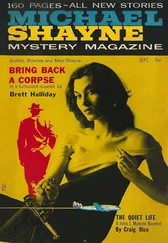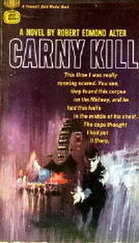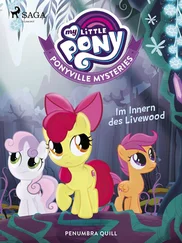Perfect Pigeon
by Carroll Mayers
At first I didn’t favor the idea. I mean, all the odds have to be on your side for a successful bank hit. But Frankie kept pressing me. Like: “It’ll be a piece of cake, Joe.”
“You’ve checked them all?” I asked.
“Every bank in the city. Security Savings is our best bet.”
“Because of one character.” I made it a statement, not a question.
“Exactly,” Frankie said. “I’ve been practically in his pocket for a week. He’s Casper Milquetoast in person.”
“Even a worm can turn.”
“Not this worm. I know him, I tell you.”
You’ve read accounts in the papers where a lone bandit tries to heist a bank by passing the teller a note threatening bodily harm, or maybe death, if he or she doesn’t give with a jackpot of cash. Sometimes the bandit scores. Usually he doesn’t. Usually the teller is only momentarily taken aback, then manages either to cry out or press an alarm button. Perhaps both. Whatever, it’s a fiasco for the heister.
Frankie had in mind the note-passing gambit. The thing was, he had a refinement. He meant to be particular about the teller he passed that note to .
I couldn’t fault Frankie’s basic reasoning. If he could tab a teller, male or female, a real Nervous Nellie who’d be too scared, too paralyzed, to take any physical action other than complete compliance, Frankie would be home free — “a piece of cake.”
That was where Frankie’s “survey” came in. Checking the personnel (first by general appearance, then by discreet, in-depth, after-work surveillance) of every bank in the city, Frankie had come up with the perfect pigeon.
One Homer Jennings.
Homer was a teller at Security Savings, and the exact type Frankie wanted. Why Homer hadn’t been put out to pasture long ago was a mystery. Certainly crowding mandatory retirement, Homer had a physique like Twiggy’s and eyesight comparable to Mr. Magoo’s. A lifetime bachelor, he lived alone behind triple-bolted doors and seldom went out after dark. More important, he frequently wrote letters to the newspapers deploring “crime in the streets.”
Unbelievable? Not really. And he was definitely our man.
However, I still wasn’t completely sold. “There’s an alarm at Security Savings, isn’t there?”
“Sure. A button on the floor at each teller’s station.”
“And you’re saying Homer will be so terrified he’ll simply freeze, do nothing but hand over the money? Won’t even shift one foot to that button?”
“He won’t risk it, Joe. He’ll be scared witless, believe me.”
It sounded good the way Frankie spelled it out. Also, I’d be going along just for the ride, so to speak. Because I wouldn’t be in the bank at the moment of truth. I’d be outside, behind the wheel of a souped-up jalopy, ready to do my specialty as a crack wheel-man. Which was why Frankie had latched onto me in the first place.
I finally agreed. “Okay, deal me in,” I told him. “You’ve got a gun to flash along with that note?”
He grinned. “I’ll pick up a plastic model at the five-and-dime. With Homer that’ll be enough.”
But Frankie didn’t stop with Homer. For three days before our hit he diligently checked traffic in the bank, determining busy and slack periods. He settled on one-thirty in the afternoon, after the luncheon rush and before the closing surge. He also surveyed the traffic on the streets at that hour and set up my best route to take off when he scooted out with the cash.
So there it was. A real easy score, right?
Wrong. We never racked it up. I managed to wheel clear when the alarm clanged, but Frankie never got out of the bank. An alerted guard’s shot shattered his shoulder.
I have to admit poor Frankie had Homer Jennings pegged one hundred percent. The old gaffer was terrified — so terrified that when Frankie gave him a glimpse of the toy gun to reinforce the note, Homer fainted dead away and his body collapsed on the alarm button, kicking it off just as neatly as if he’d nudged it with his foot.
The Cop Who Loved Flowers
by Henry Slesar
Spring comes resolutely, even to police stations, and once again Captain Don Flammer felt the familiar, pleasant twitching of his senses. Flammer loved the springtime — the green yielding of the earth, the flourishing trees, and most of all, the flowers. He liked being a country cop, and the petunia border around the Haleyville Police Headquarters was his own idea and special project.
But by the time June arrived, it was plain that there was something different about Captain Flammer this spring. Flammer wasn’t himself. He frowned too much; he neglected the garden; he spent too much time indoors. His friends on the force were concerned, but not mystified. They knew Flammer’s trouble: he was still thinking about Mrs. McVey.
It was love of flowers that had introduced them. Mrs. McVey and her husband had moved into the small two-story house on Arden Road, and the woman had waved a magic green wand over the scraggly garden she had inherited. Roses began to climb in wild profusion; massive pink hydrangea bloomed beside the porch; giant pansies, mums, peonies showed their faces; violets and bluebells crept among the rocks; and petunias, more velvety than the Captain’s, invaded the terrace.
One day the Captain had stopped his car and walked red-faced to the fence where Mrs. McVey was training ivy. Flammer was a bachelor, in his forties, and not at ease with women. Mrs. McVey was a few years younger, a bit too thin for prettiness, but with a smile as warming as the sunshine.
“I just wanted to say,” he told her heavily, “that you have the nicest garden in Haleyville.” Then he frowned as if he had just arrested her, and stomped back to his car.
It wasn’t the most auspicious beginning for a friendship, but it was a beginning. Flammer stopped his car in the McVey driveway at least one afternoon a week, and Mrs. McVey made it clear, with smiles, hot tea, and homemade cookies, that she welcomed his visits.
The first time he met Mr. McVey, he didn’t like him. McVey was a sharp-featured man with a mouth that looked as if it were perpetually sucking a lemon. When Flammer spoke to him of flowers, the sour mouth twisted in contempt.
“Joe doesn’t care for the garden,” Mrs. McVey said. “But he knows how much it means to me, especially because he travels so much.”
It wasn’t a romance, of course. Everybody knew that — even the town gossips. Flammer was a cop, and cops were notoriously stolid. And Mrs. McVey wasn’t pretty enough to fit the role.
So nobody in Haleyville gossiped, or giggled behind their backs. Mrs. McVey and the Captain met, week after week, right out in the open where the whole town could see them. But he was in love with her before the autumn came, and she was in love with him; yet they never talked about it.
She did talk about her husband. Little by little, learning to trust Flammer, inspired by her feelings for him, she told him about Joe.
“I’m worried because I think he’s sick,” she said. “Sick in a way no ordinary doctor can tell. There’s such bitterness in him. He grew up expecting so much from life and he got so little.”
“Not so little,” Flammer said bluntly.
“He hates coming home from his trips. He never says that in so many words, but I know. He can’t wait to be off again.”
“Do you think he’s—” Flammer blushed at the question forming in his own mind.
“I don’t accuse him of anything,” Mrs. McVey said. “I never ask him any questions, and he hates to be prodded. There are times when — well, I’m a little afraid of Joe.”
Читать дальше












